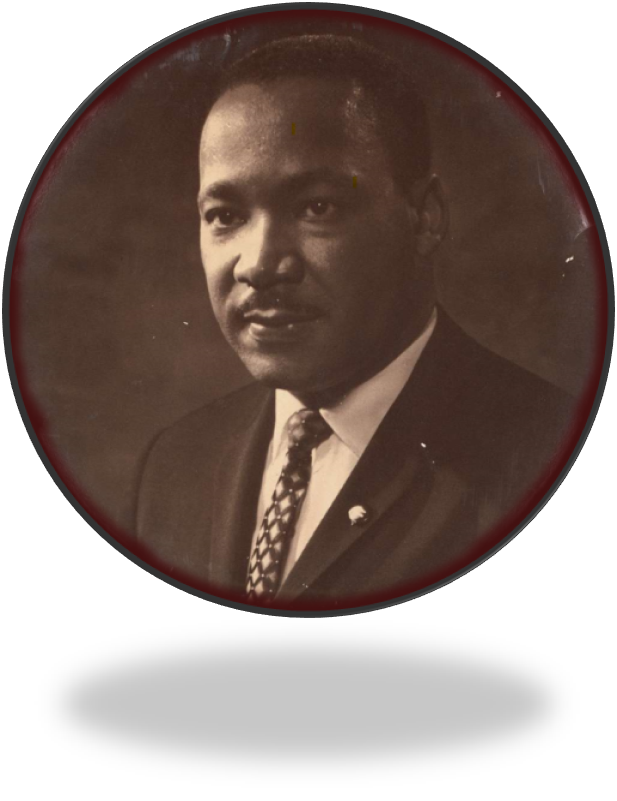So it is obvious that if man is to redeem his spiritual and moral lag, he must go all out to bridge the social and economic gulf between the “haves” and the “have nots” of the world. Poverty is one of the most urgent items on the agenda of modern life…There is nothing new about poverty. What is new, however, is that we have the resources to get rid of it…There is no deficit in human resources; the deficit is in human will. The well-off and the secure have too often become indifferent and oblivious to the poverty and deprivation in their midst. The poor in our countries have been shut out of our minds, and driven from the mainstream of our societies, because we have allowed them to become invisible. Just as nonviolence exposed the ugliness of racial injustice, so must the infection and sickness of poverty be exposed and healed – not only its symptoms but its basic causes. This, too, will be a fierce struggle, but we must not be afraid to pursue the remedy no matter how formidable the task…The time has come for an all-out world war against poverty. The rich nations must use their vast resources of wealth to develop the underdeveloped, school the unschooled, and feed the unfed. Ultimately a great nation is a compassionate nation. No individual or nation can be great if it does not have a concern for “the least of these.”
--Reverend Dr. Martin Luther King, Jr., Nobel Lecture, December 11, 1964
Today we honor the life and legacy of Dr. Martin Luther King, Jr., minister, activist, and political philosopher, who played a vital role in shaping civil rights reforms of the 1960s. For his nonviolent activism during the American Civil Rights Movement, Dr. King was honored with the Nobel Peace Prize, just four years prior to his assassination on April 4, 1968. January 15, 2024, marks his 95th birthday and the National Day set aside to commemorate his transformative contributions.
January is also National Poverty Awareness Month, a time to reflect on those less fortunate, as referenced in the quote above by Dr. King, himself. Along with his commitment to civil rights, Dr. King fought to address the economic disparity he witnessed, especially in a country of abundant wealth. He was an advocate for direct and consequential nonviolent action to right the wrongs of poverty and oppression.
Giving voice to the poor is something Dr. King is known for. In his work on the Poor People’s Campaign, he demanded economic and human rights for impoverished Americans, particularly after seeing that improvements in civil rights did not translate to improved material circumstances for many people of color. He called attention to the social exclusion associated with life at the margins, emphasizing the greatly reduced opportunities for access to the physical, intellectual, and social resources of more privileged communities. Dr. King sought to unite the poor around hardships of economic insecurity. He grounded the campaign in a common objective -- of alleviating poverty for all who suffer deprivation, regardless of race, creed, color, or identity. Persuading Congress to pass an Economic Bill of Rights for the nation’s poor was the ultimate goal, the five planks of which included,
"A meaningful job at a living wage;"
"A secure and adequate income" for all those unable to find or do a job;
"Access to land" for economic uses;
"Access to capital" for poor people and minorities to promote their own businesses; and
Ability for ordinary people to "play a truly significant role" in the government.
Though Dr. King’s life was cut short on April 4, 1968, and the political winds of change shifted from a focus on poverty to an emphasis on the Vietnam War, the lasting currents of his work still run through the discourse surrounding anti-poverty efforts today. Debates over Universal Basic Income have reemerged — including in Harris County — as have policy discussions surrounding affordable housing and a higher minimum wage.
Following the lead of several major cities throughout the nation, Harris County is implementing an innovative pilot program to offer guaranteed basic income for nearly 2,000 households in 10 zip codes throughout the region. Uplift, as it’s called, will provide 18 monthly payments of $500 for qualifying individuals. Applications for the Uplift program open on Friday, January 12, 2024 and close on Friday, February 2, 2024. Interested applicants can learn more on the Uplift Harris FAQ page.
Further Reading
Statement Announcing Poor People’s Campaign (Civil Rights Movement Archive)
Martin Luther King Jr.: An Extraordinary Life (The Seattle Times)
Martin Luther King Jr. and the Unfinished Work of Abolishing Poverty (The Nation)
The Last March of Martin Luther King Jr. (The Atlantic)
Martin Luther King Jr.’s Call For a Poor People’s Campaign (The Atlantic)
MLK Was a Radical Who Hated Not Only Racial Subordination But Class Exploitation (Jacobin)



